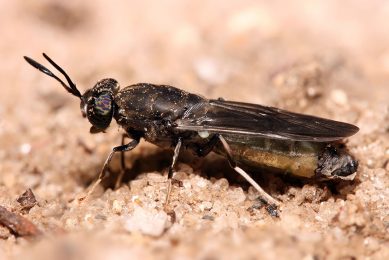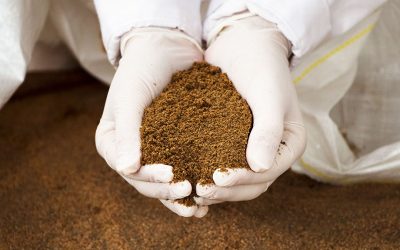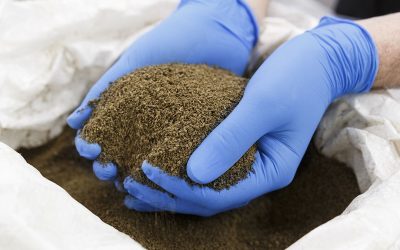US senators dislike subsidies for insect farming

It seems that not everyone is happy with all the investments in insect protein. US senators Flake and Cortez Masto asked the USDA to prohibit subsidies for insect farming.
The North American Coalition for Insect Agriculture (NACIA) states in a press release that it is not happy with these statements from the senators to oppose the development of a potential new protein source to feed the growing world population.
No subsidies for bug based foods
After a failed attempt to add an amendment to the Farm Bill earlier this year that sought to ban research funding for insect agriculture and insect-based foods, senator Jeff Flake (Republican in Arizona) has now teamed up with senator Catherine Cortez Masto (Democrat in Nevada) in a renewed effort to frame ongoing research supporting insect farming as “wasteful”. Their proposed legislation (Removing Excessive Dollars to Uproot and Cut Expensive (REDUCE) Government Waste Act) states that they want to prohibit agricultural subsidies for bug-based foods. They want to prohibit USDA and the Food and Drug Administration from using funds to research the development and taste-testing of insect-based foods for human consumption as well as insect farming. Also the the Council for Citizens Against Government Waste (CCAGW) president Tom Schatz supports this act he said.
Potential for growth of insect sector in US
According to NACIA, insects are a source of protein for food and feed and is a growing industry with over 250 companies worldwide. Have a look at the biggest commercial companies selling insect meal and insect oil here. The insects as feed industry alone was estimated to be worth $ 900 million in 2016 and is forecast to reach $ 1.5 billion by 2022 (Mordor Intelligence, 2017). ‘The insect agriculture industry has grown tremendously in only a few short years – creating jobs, starting American businesses, and fuelling economic growth. All signs point to that growth not only continuing, but accelerating. We would welcome the opportunity to show Senators Cortez Masto and Flake how this new agricultural sector could benefit not just the small business owners and farmers already active across 27 states, but their constituents in Nevada and Arizona as well,” said Robert Nathan Allen, NACIA president. There are currently more than 30 companies in the US growing insects for food and feed, employing approximately 200 people. The city of Charlotte, North Carolina recently announced an initiative that relies on black soldier fly larvae (BSFL) to upcycle 50,000 tons of food waste annually and be harvested for poultry feed. This project alone is expected to create 300 jobs.
Hundreds of millions of funds into global insect sector
According to Liz Koutsos, president of EnviroFlight LLC: “There is no doubt that insects as animal and human food ingredients are part of the future of agriculture. We are excited to leverage the technical skills and innovation of our workforce, with the quality and safety guidance provided by the US government to meet this demand. We are also excited to integrate into the agricultural supply chain by utilising food and feed waste streams to improve protein nutrition of the agricultural species that feed the world.” EnviroFlight recently opened a new commercial BSFL production facility in Maysville, Kentucky bringing investment and jobs to that community. To date, American businesses have received approximately $ 25 million in publicly disclosed private investment, though the exact figure is believed to be much greater. Investors include respected entrepreneurs and companies like Arielle Zuckerberg, John Chambers, Buhler Group, Wilbur-Ellis, and Mark Cuban. Globally, insect agriculture companies have garnered hundreds of millions of dollars in investment in the last 2 years alone.
The Removing Excessive Dollars to Uproot and Cut Expensive (REDUCE) Government Waste Act is still a proposal.











